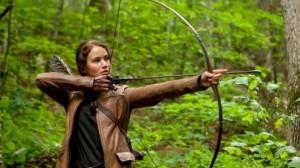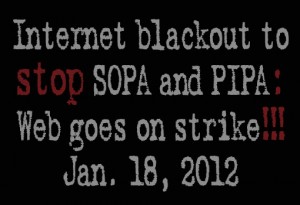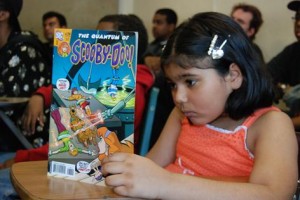Oscar Nominated Films As Reenacted By Children
Tonight is the 84th Academy Awards ceremony, and it seems appropriate to see how children are used to comment upon the Oscar nominees. As found on Jest.com, children are used to reenact some of the Oscar nominated films from 2011.
Part one of the child reenactments of 2011 Oscar nominated films from Jest.com:
Part two of the child reenactments of 2011 Oscar nominated films from Jest.com:
The child actors adopt adult roles from the nominated films in a way that is supposed to be humorous to the adult viewer. While the child actors are likely aware that their cute and funny behaviors evoke a positive reaction from an adult, they are unlikely aware of the connotations and meanings of the things that they are saying. This tactic is similar to the one seen in Baby Burlesks, as was discussed in class. (The child reenactment of Midnight in Paris is strangely similar to the Baby Burlesks clips that we watched in class.) Adult viewers are deriving humor and pleasure from something that is being inappropriately displayed by a child in Baby Burlesks and in the child reenactments of Oscar nominees. The innocent child portraying something provocative and unsuitable is prevalent in both past and present culture. Why adults continue to find this type of entertainment amusing is curious… and a bit twisted.
Although it is not readily apparent that these children are experiencing any emotional labor, it should not be assumed that they are not. These children are being asked and prompted to act like someone whom they are not, and this could have the potential of inducing emotional labor.
In the reenactment of The Help, the girls reference racism in a way that is very childish. The first girl exclaims, “I solved racism!” and later says “I’ll feel better about being a white person and you’ll lose your job?” while the other two girls in the reenactment eagerly nod their heads. The first comment made portrays the innocence of childhood, and the second comment coupled with its response from the other two girls is something that is aimed at the adult viewer. These children probably do not realize that they are being used to humorously depict a controversial race issue from American history.
The children are also used to poke fun at the actual award ceremony itself. In the reenactment of Extremely Loud and Incredibly Close, one of the boys says, “If I find out where this key goes, maybe I’ll understand why this movie was nominated for an Oscar.” This statement reiterates the notion that these child actors do not really understand the movies or the content that they are acting out. Additionally, the comment and the writings on the boys’ hands satirize the type of movie that would be nominated for an Oscar. This is something an adult, not a child, would find comical and witty.
In the reenactment of The Descendants in part two of the video clips, the children again assume very adult roles and remain entirely unaware of the unsuitability of their placement. The children are apologizing for who they have slept with. This in particular comes off as fairly disturbing. This clip differs from Baby Burlesks because the sexual references are explicit; the explicitness of language and connotation taints the innocent façade of the child actor.
The childish voices attached to the small bodies trying filling adult ones, penciled on mustaches, hidden smirks, lack of intonation, scribbled drawings, and outbursts of “Puppy!” and “Dinosaur!” are some of the surface features that make these clips entertaining. Perhaps because these surface features enchant and engross adult viewers, and very little thought is given to the improper placement of the child into an adult scene, is why this type of entertainment has successfully lasted throughout the years.








